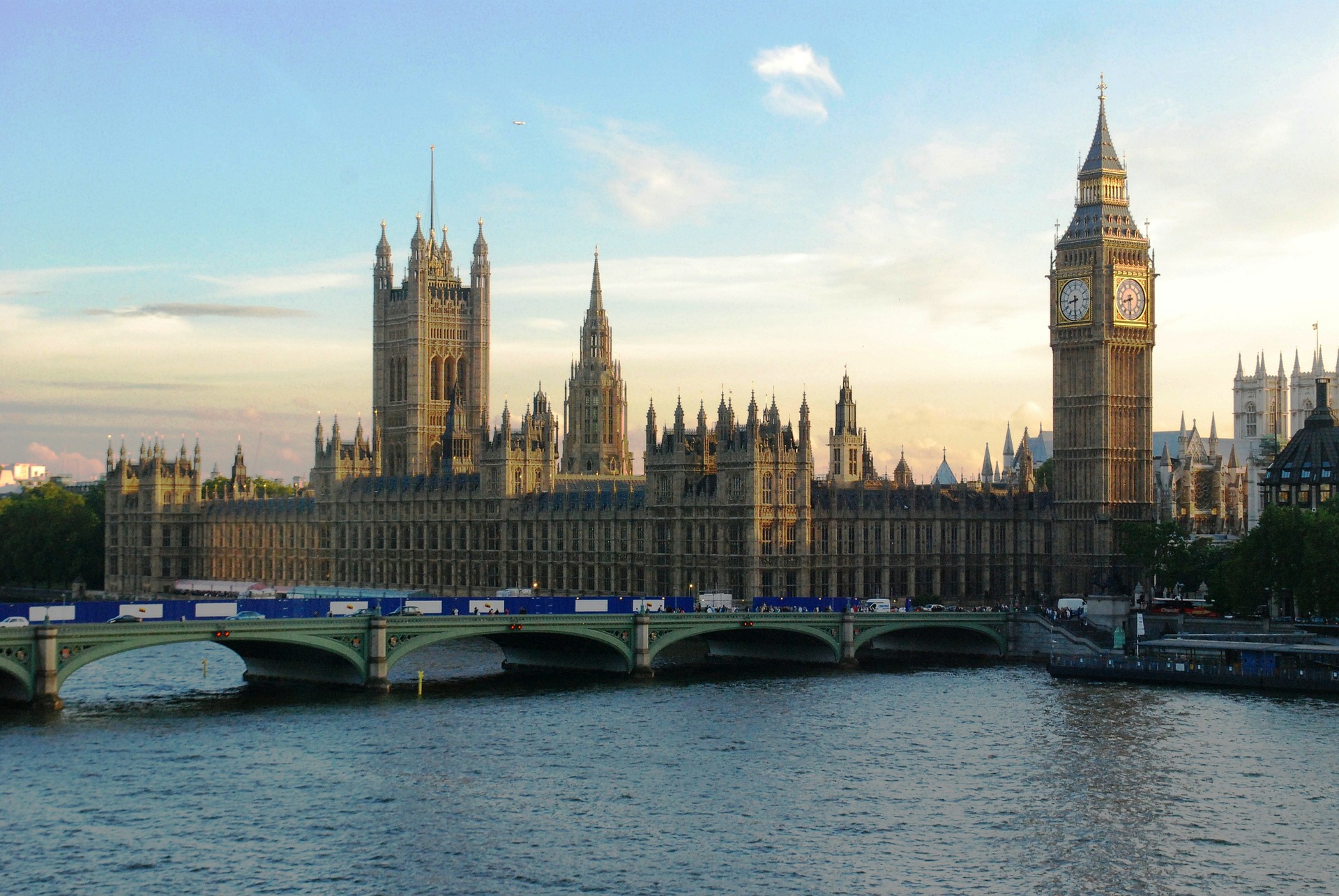
Smart contracts and Cryptoassets now recognised in law
November 27, 2019
Clear the Lobby: What laws are MPs voting on this week (w/c 2 December)?
December 2, 2019Article by Eliza Liddicott
Introduction to the Series
The political world is in an unprecedented and exciting state. But, as future lawyers, it is important for us also to consider the legal aspects of recent developments. With recent controversial judicial rulings, the election of a new House of Commons speaker, and the confirmation of a sudden general election, it is difficult to keep track. Thus, over the next few weeks, you should check back in on TSL to see our updates on the current relationship between law and politics in this series.
Update One: General election
As the December vote is now less than a month away, the imminent election and its potential legal impact is a good place to start when analysing the political sphere. From policy pledges to the ever-confusing debates around ‘Brexit’, the law is constantly affected by the decisions of our politicians.
First things first
After receiving another Brexit extension from the EU until January, the PM wished to speed up the Brexit process and, realising that he needs a majority in the House of Commons to ensure his deal passes (and passes quickly), he decided to call an election. In October, following a number of failed attempts, MPs agreed to a 12th of December vote.
- What are the legal implications?
The Fixed Term Parliaments Act, passed by the coalition in 2011, details that elections are to occur every five years after the commencement of a Parliamentary session. As the last election was in 2017, the PM is not adhering to the legal schedule. However, the Act does allow for early elections to be called if two-thirds of MPs agree to it, the procedure by which Theresa May held the last election. Otherwise, a vote can be called if the government loses a vote of no confidence and cannot establish a new administration in 14 days. Thus, Johnson, having received an overwhelming majority of votes in favour of an election, is not breaking the law by deviating from this 5-year structure and seeking a vote earlier than the planned 2022.
Secondly, and perhaps a little scarily: ‘Brexit’
The Conservatives: Boris Johnson’s main aim is to quickly pass the Withdrawal agreement that he has negotiated with the EU – with the initial framework being set out by his predecessor Theresa May.
- What are the legal implications?
A key change in Johnson’s deal is the removal of the UK from the EU Customs Union, which we are currently included in due to membership of the Treaty of the Functioning of the EU. This allows goods to move from EU countries without the charging of taxes and mandates all EU countries to charge the same taxes on goods arriving from outside the EU. The PM wishes for the UK to negotiate trade deals with non-EU countries, something that was previously prohibited for individual member states to do. Moreover, as the Republic of Ireland remains in the EU when Northern Ireland leaves with the UK, there are planned legal checks on goods that pass from the North to the South of Ireland. The creation of a border between the countries, in whatever form it eventually manifests, is a very controversial legal change, as a potential ‘hard border’ could ignite political and military conflict between the countries – something which the UK and the Irish Republic have aimed to avoid since the ‘Troubles’ of the mid 20th century.
The Labour Party: Though Labour is divided, the general aim of Leader Jeremy Corbyn and leading members of the Party is to maintain a close relationship with the EU should the UK leave – notably by staying in the Customs Union.
- What are the legal implications?
Remaining in the union and allowing the continuation of free trade between the UK and other EU countries would result in less of a legal change transition, as the laws governing the importation of goods and trade with non-EU countries would stay largely the same.
Another pledge made by Labour is the holding of a second referendum, though this vote would be on whether the UK should remain in the EU or leave with a deal that is made known to the public. Should the former be chosen, there would be no need or the UK to engage with the EU Withdrawal Bill – a Bill that prevents EU laws from applying in the UK.
The Liberal Democrats: Since 2016, the Liberal Democrats have been the party most associated with ‘Remain’, and for the upcoming election, their policy has not changed. If elected as a majority government, leader Jo Swinson vows to hold a second referendum on the UK’s place in the EU, in which the Party would campaign to stay.
- What are the legal implications?
As referendum votes are not the same as statute law, they are not binding and so, technically, their result does not have to be followed. Thus, if a Liberal Democrat government held a second referendum that resulted in a ‘Remain’ majority, it would not face legal consequences – only the negative response of those who voted ‘Leave’ in 2016.
However, the law is still concerned with the process of a potential Brexit cancellation – the law in question being Article 50 of the Treaty of the European Union. This Article 50, which came into force in 2009 (following the 2007 Treaty of Lisbon and revising the 1992 Maastricht Treaty) contains the only procedure for exiting the EU, setting out that a member state must notify the European Council of its intention to leave and negotiate the terms of its departure. In 2017, then PM Theresa May invoked Article 50 in a letter to the Council and the UK currently resides in the negotiation stage, so if the Liberal Democrats won, they would have to cancel this invocation.
Last but not least: other key party proposals
While Brexit is important, statistics have proved that it is not the only thing on the public’s agenda; for example, the environment, employment and education are constantly subject to debate. Moreover, it is essential to consider the ideas of smaller parties, as recent elections and discontent with traditional politics have evidenced a move away from the two-party system we are familiar with.
The Conservative Party – charging single-use plastics: We have all become more aware of the detrimental impact our current lifestyles have had on the environment. Additionally, anti-climate change campaign groups have become more active in spreading their message. Thus, political parties have attempted to deliver the solutions to our climate problems – with the Conservatives pledging to charge all single-use plastics.
- What are the legal implications?
In 2015, the Conservative government introduced a law mandating retailers to charge £0.5p for single-use plastic bags. This was met with both positive and negative responses, the former valuing a predicted reduction in non-biodegradable waste, and the latter finding it an unnecessary expense to pay for a bag. With regards to the new law, it can be said that ‘single-use plastic’ is a far wider range of products than just plastic bags – for example, straws and plastic gloves may now be charged. Consequently, it is possible that a range of new legal challenges will emerge from parties attempting to avoid charging for specific items, with the responsibility likely to fall upon the courts in providing a definition of ‘single-use’.
The Labour Party – four-day working week: Recent reports by the Office of National Statistics have shown that workplace productivity in the UK has reached a plateau in recent years, despite technological and communication advances that have made the working week less strenuous. In response, the Labour Party has pledged to introduce a four-day working-week, going back to the traditional roots of the Party by also suggesting that Trade Unions would be largely involved in adapting this new policy to various work sectors. Opposers have claimed that this would place a great burden on the NHS, increasing costs as more medic would have to be employed to cover the 24-hour care required.
- What are the legal implications?
Working hours in the UK are governed by the Working Time Regulations 1998, a statute that gave effect to the EU’s Working Time Directive 2003 – already evidencing uncertainties as the UK progresses towards Brexit. This statute maintains that workers cannot work for more than 48 hours a week due to extensive working hours affecting both individuals’ physical and mental health. When the original EU law was passed in 1993, the then UK Employment Secretary (Conservative David Hunt) described the UK’s hostility towards regulation and argued that we should have more autonomy in choosing our working hours. The proposal of Labour to further reduce our permitted working hours suggests that the above Directive will no longer have precedence once we leave the EU, and thus foreshadows the great legal change that will occur once we are no longer under the EU’s jurisdiction. Legally limiting working hours in this way is also likely to spark a mixed public response, with those in a position of financial difficulty possibly taking against their reduced opportunities to earn.
The Green Party – scrap university tuition fees: University fees have long since been a cause of frustration for students across the UK, with high costs leading to the stress of having to repay loans or even putting young people off applying to university altogether. Thus, as a method of encouraging access to, and equality in, higher education, the Green Party aims to scrap university tuition fees.
- What are the legal implications?
Under the Teaching and Higher Education Act 1998, UK universities are allowed to charge tuition fees from all students. Devolution and different regional opinion have resulted in varied fees across the nations of the UK, with the fees in England and Wales having been capped at £9,250 a year – a figure that has been frozen, but not reduced, since 2017. A key argument posed by students is that most legislators did not have to pay such university fees for their own degrees, and thus why should young people of today be forced into this great debt in order to access higher education. On the other hand, this great legal reform would not eradicate the cost of teaching students. So university funds would have to be deducted from general tax – a shift in the law that the general public is likely to be concerned with.
The above breakdown displays how the worlds of law and politics can intertwine, and reminds us, as lawyers, that the motives and views going into the making of law are just as important as the final product.
For those who want to know more, be sure to check back in next week for an analysis of the legal role of the House of Commons speaker, as well as a profile on the latest politician to take this seat.





